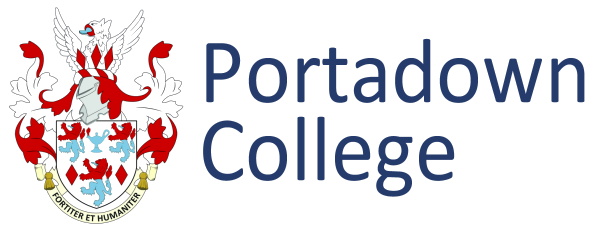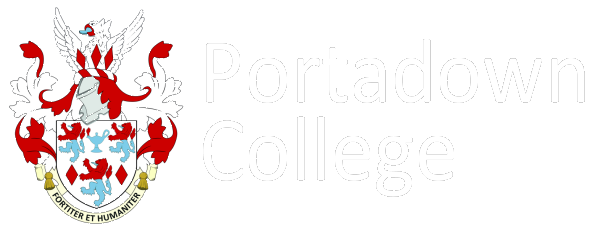Why chose a career in the IT industry?
You’ll get paid more!
The average tech salary in Northern Ireland is £33,000. A graduate software developer can expect a starting salary from £24,000–£32,000. That compares to an average salary of £26,232 across all jobs in Northern Ireland. (source: https://bringitonni.co.uk/life-in-it/ )
Great jobs on your doorstep
There are lots of job opportunities in IT in Northern Ireland, but IT skills will also open doors for you to travel and work around the world. IT skills will allow you to work across different industries and take many different career paths.
A diverse range of opportunities are open to you across different specialisms
Over 2000 leading tech companies operate in NI, including Allstate, PwC, Neueda, Microsoft, First Derivatives, Liberty IT, Kainos, Novosco, Fujitsu, SAP, Broadsoft, Xlinx, Rapid7 and Whitehat Security.
Build transferable skills
IT jobs often need you to be creative and analytical. The skills you build will transfer easily to any career or business you want to follow in the future.
Relaxed and Informal working environment
The IT sector is inclusive, diverse and team orientated. Around 81% of IT professionals have flexible working arrangements. With IT skills in such high demand, employers offer good conditions to help keep their team happy and motivated. Perks can include free tea, coffee, snacks and lunches, free beer Friday, yoga, social gatherings and well-being initiatives.
Thrive personally
IT projects involve working in a team of enthusiastic and like-minded people. You’ll help each other to develop and fulfil your potential. This makes for a rewarding career.
IT for social good
You’ll get many different opportunities to use your IT skills for social good. Big data is being used to help fight climate change and predict the spread of diseases such as COVID-19.
Entry Routes
Employers in Northern Ireland and further afield are looking for people with the IT skills they need. There is a skills gap in Northern Ireland, many high-growth businesses in industries such as artificial intelligence, software development and cyber security struggle to find enough people with relevant skills to fill all the jobs they would like to create.
There are many different routes to take, whether you leave school after your GCSEs or follow an academic route all the way through to a master’s degree. Both provide the opportunity to build a successful career in IT. You could also join an Earn as you learn scheme or complete an apprenticeship, It’s just about finding the path that’s best for you.
Have a look at some of the different opportunities.
Higher Level Apprenticeships
A Higher Level Apprenticeship is an apprenticeship with a targeted qualification between Level 4 (HNC equivalent) to Level 8 (PhD equivalent).
A Higher Level Apprenticeship develops professional and technical skills, as well as gaining recognised higher qualifications while in paid employment.
In a Higher Level Apprenticeship scheme the employer recruits a learner for two years. The learner will gain their qualification while working four days a week in an industry relevant role and attending training at college one day a week.
On completion of the apprenticeship students may have the opportunity to take on further training or take up a full time post with their employer.
There are a wide range of Higher Level Apprenticeships available including Software Engineering, Computing Infrastructure, Computing and Cyber Security.
Foundation Degrees
Foundation Degrees enable employers to access students at the end of their final year.
Learners study full time at college for two years including a four month work placement in their final semester as part of earning their third level qualification.
There are currently opportunities in Foundation Degrees in the areas of Computing Infrastructure, Interactive Media, Software development, Computing and Cyber Security.
Higher National Diplomas (HND)
Higher National Diploma (HND) courses are an ideal opportunity for IT companies to engage with learners.
For two years learners will acquire the skills and disciplines in their chosen field and have the opportunity to network with employers at events and conferences.
Assured Skills Academies
Academies are developed under the Department for the Economy (DfE) Assured Skills programme and Invest Northern Ireland.
They are bespoke programmes which have been developed in conjunction with the employer and higher education institutions to get the skills they need to support a growing business. Academies seek to assure potential investors, and existing employers considering expansion, by supporting companies to add value to their training and skills development activity.
Assured Skills Academies delivered include – Cyber Security, Data Analytics, Power BI, Software Development and Software Testing.
Earn as you Learn Schemes
Get paid to study for your degree part-time – and get valuable real-world experience while you do it.
Kainos are just one of many local companies who run an Earn as you Learn scheme. At Kainos you would join as an Apprentice Software Engineer, earn a great salary and all the benefits that they offer their staff. You’ll work four days a week, and the other day will be spent studying for your degree part-time at Ulster University, over four and a half years. They’ll pay your tuition fees as well as your salary – altogether, it’s a package worth up to £100,000.
You’ll get to work with experienced software development professionals on live projects for real clients – it makes for faster, better learning opportunities that are much more rewarding. And you’ll get to enjoy everything that comes with joining an exciting, dynamic and award-winning business at the forefront of the industry.
You’ll have money in your pocket along the way, be debt-free when you finish and come away with a full degree and a great job to walk in to.
One of our Year 14 Computer Science leavers took up a position with Kainos on this scheme in the Summer of 2022. We look forward to hearing more about this.
Students should speak to their Digital Technology, Computer Science or CEIAG teacher if they would like more information on any of the above.







